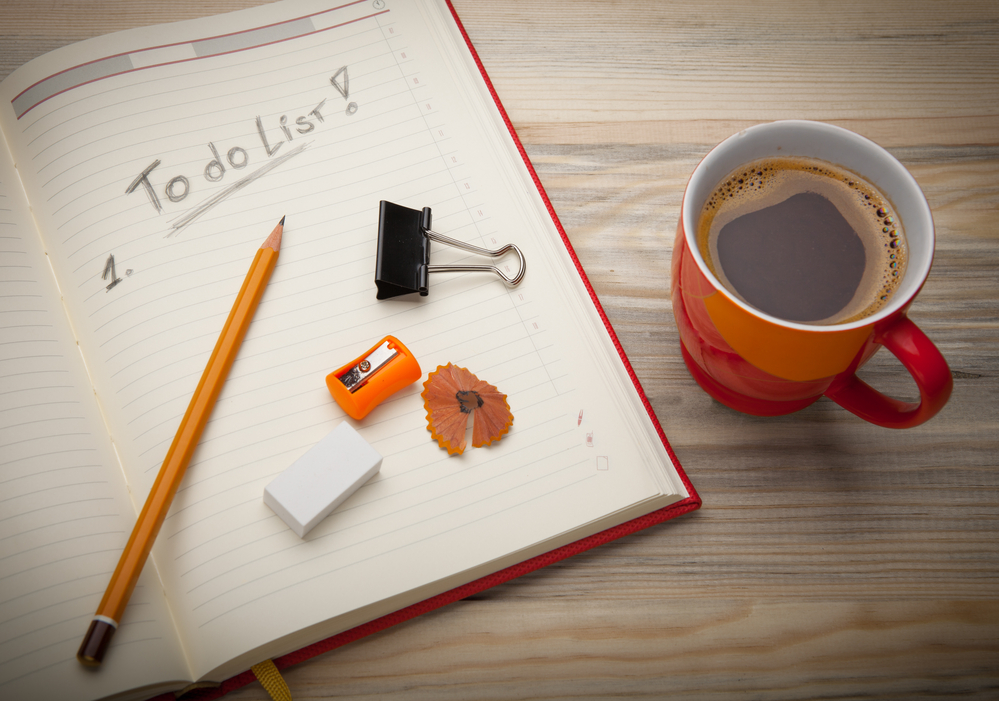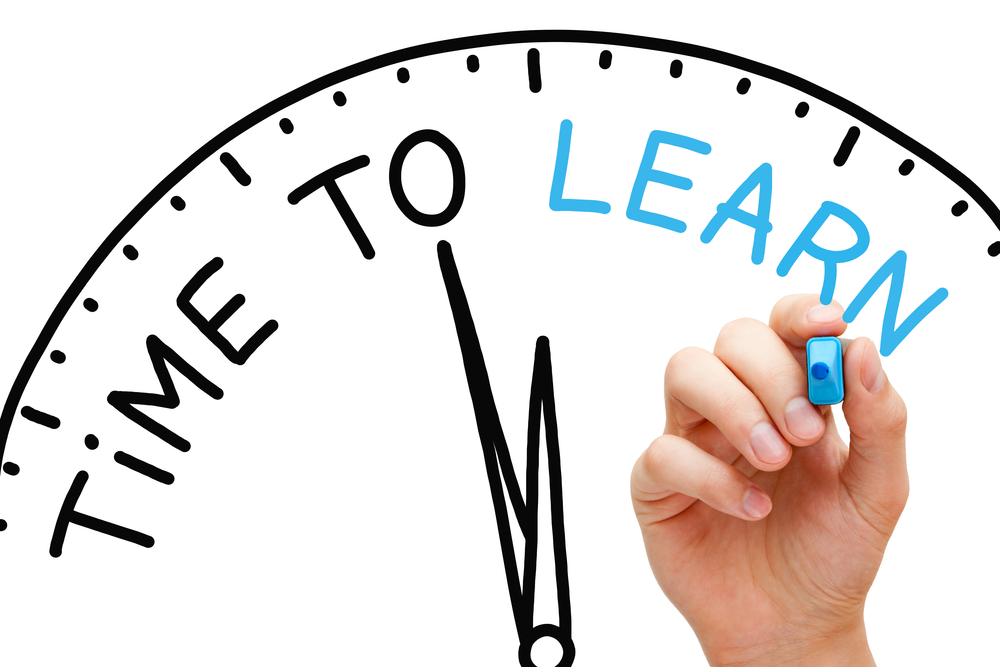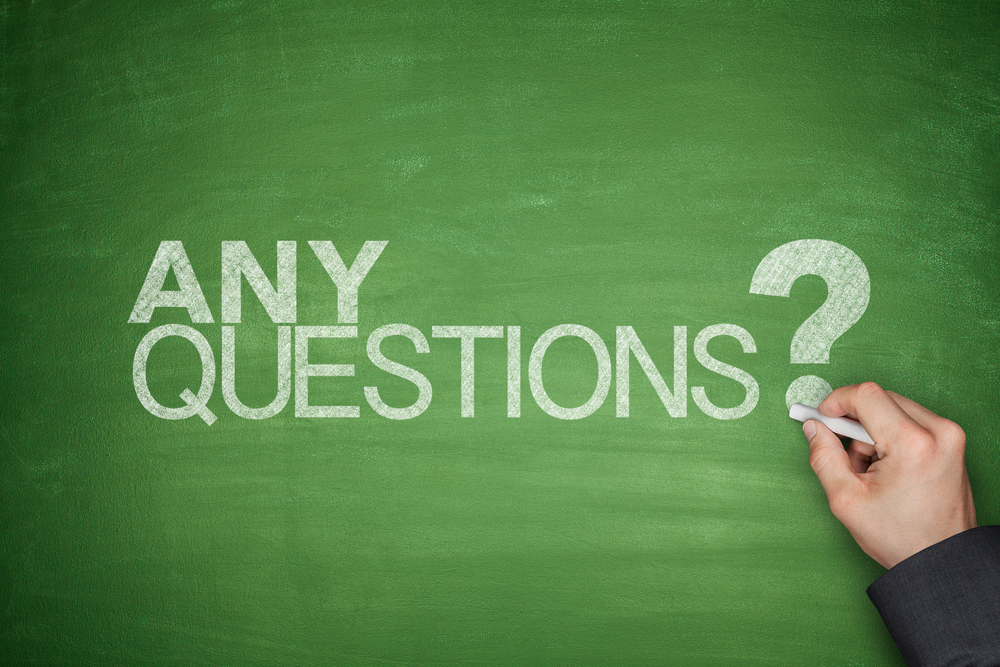A vacancy in your work team can bring on the pressure to find a highly-qualified replacement that can suitably fit the position. Can the right candidate be determined through just an interview?
In your search for a candidate, coming up with the top interview questions to ask matters a lot. Preparation and creativity are needed, not just by the applicant, but by you as the interviewer.
By the way, it looks, interviewing a job applicant seems easy enough. By using the job description as a guide to get a good understanding of a candidate’s personality, skills and experience, you feel so confident that you’ll reach a decision in no time. Unfortunately, it isn’t all that simple.
To assess if a candidate is fit to fill a vacancy, ask questions that are explicitly related to the company or position applied for. This will allow them to demonstrate their ability to think under pressure as well as reveal their personality.
The interview will help you determine if a job applicant is well-suited for the position and an asset to your team and company as a whole. However, only by asking the right questions can important information about the candidate be brought to light.
What, then, are the right questions to ask? Here are the top interview questions to ask to make you gain awareness of an applicant’s skill level and personality, and help you make the right decision.
1. Tell Me Something About Yourself That’s Not Included On Your Resume.
Resumes are crafted with care by job seekers to present their professional skills and experience in the best possible way. However, you can’t learn everything about a candidate from what they’ve got it down on paper.
This question is intentionally unclear to allow the applicant to decide whether they are willing to disclose something about their personal or professional life. An applicant may tell you about their overseas training or some charity work they took part in, or other important highlights in their life.
This question also offers an opportunity to learn interesting things about an applicant that may not be revealed in an ordinary interview. The story they tell and the way you react to them can reveal many things about the type of worker they will turn out to be.

2. Do You Know Enough About Our Company, and Why Do You Want to Work With Us?
This question will help you determine whether an applicant has researched your company well enough to know much about it. This will also reveal what they are looking for in their employer. Pay attention to how the applicant answers this question, listening to the way they describe your company, and for any resemblances, they are drawing between your organization and their career objectives.
While information is readily accessible online today, not all job seekers may have any idea what kind of business your organization is involved in. Ask this question to find out how interested (or not interested) the applicant is with working in your company.
3. What Are Your Greatest Weaknesses?
Being one of the most-often-asked in an interview, this question can help you find out more about an applicant. This will allow you to assess:
- Whether the applicant’s weaknesses might clash with their job or be a hindrance to their work.
- Whether the applicant is mindful enough to recognize their weaknesses without much hesitation.
- Whether an applicant is striving to overcome their weaknesses.
4. What Are Your Greatest Strengths?
Similar to dealing with weaknesses, an applicant reveals their level of mindfulness and an unassuming nature when they talk about their strengths. This also serves as an opportunity for the applicant to align their top abilities with job requirements and show how they can harness their assets to help the company attain its business objectives.
5. What is the One Skill That Qualifies You Most for This Position?
Culture fit assessment is important when interviewing job applicants. However, your focus is mainly on finding a person who is highly qualified to fill the job vacancy.
This should be considered as one of the top interview questions to ask. This allows you to hear more about what the applicant considers their top qualities. It also gives you the opportunity to determine that they have a right assessment of what their position requires.
For instance, if the skill they mention does not sync with the major responsibilities of the job, it could be a sign that you are not in agreement about what you are trying to achieve.
6. Which Project Did You Find Most Interesting In Your Past Position?
There have been many instances when a candidate describes their most interesting work and find it does not line up with the position they are applying for. This question will determine if the applicant will find their work enjoyable in your company. It offers you the opportunity to see if what the applicant finds rewarding is closely aligned with the responsibilities involved in their position. Ensuring that employees are fulfilled and happy with their work is a major factor in retaining your best employees.
7. In Your Last Position, Were You Faced With a Difficult Challenge That You Overcame Successfully?
Job seekers positively dread behavioral interview questions like this. This is an effective method to understand how a person’s “experience” on CV converts to the real work environment.
This question will enable you to gain some understanding of the applicant’s analytical skills and decision-making ability. Take note of their description of how they conducted themselves when faced with a stressful situation. See if they hesitated, exerted a great effort, or had prepared a plan of action beforehand.
Getting a clear idea of how an applicant deals with and overcomes challenging situations will help you decide who the most suitable candidate for the position is.

8. So Far, What Career Accomplishment Are You Most Proud Of?
Job applicants aim to impress company headhunters. Therefore, expect them to be armed and prepared with a list of accomplishments at the interview.
This question gives the job candidate an opportunity to give fuller details on something they feel proud of, and make them feel relaxed and confident during the interview. Because it is essential to have someone who can be an asset to your team, you will want to hire an applicant who is proud of their accomplishments.
Whether it was a company commendation, a promotion, or a job that turned out remarkably well, listening to the applicant recall their proudest moment will give you an idea of where their area of excellence is.
9. Can You Tell Me How You Meet Tight Deadlines?
This is a good question if your team often tackles tight schedules, and even better if you are looking for a fast worker who can work competently even when under pressure. This will help you gauge how well they work under stress and whether they can effectively keep up with the company’s work pace. As a follow up, you can ask if the applicant ever failed to meet a deadline and how they handled the problem.
10. Describe a Favorite Supervisor In Your Last Job, As Well As Your Least-Favorite Supervisor – and for What Reasons.
This question provides you a quick understanding of how the applicant handles working under a superior. It also allows you to peek into their maturity and general attitude.
11. Can You Describe What Your Current Job Is?
This is one of the top interview questions to ask if you want to evaluate a candidate’s communication skill, while getting a better perception of their background and experiences that are not included in their resume.
12. Why Are You Leaving Your Current Employer?
Conducting a job interview gives you the opportunity to determine whether or not an applicant is suited, and to find out if they are someone your team will enjoy working with.
The applicant may have issues with management, co-workers, personal advancement, etc. This question gives you an opportunity to offer an alternative to the issues that made them dissatisfied with their current employer. However, be aware of applicants who expect too much or have unrealistic goals. An employee who quits their job for minor reasons may disappoint as a long-term fit for your company.
13. How Would You Define Hard Work?
Not all companies move at the same pace. This question requires some creativeness to answer but it can effectively reveal whether an applicant can keep pace with the rest of the work team. It can also help you recognize the potential hard worker hiding behind a job applicant, who might be presently working at a slow-paced company, or in a position that is not suited for them but wants to work in a company where they can fully apply their skills.
14. Can You Describe The Way You Work?
You ideally want to build a team that works as one. You want to make sure that a new employee works the same way and not be a liability to your team’s operations.
It is for this reason that you should ask every applicant about the way they conduct their work. You may discover that one applicant is a great team player, while another feels more comfortable working alone. One can work with minimal management, while another may require more direction and supervision.
Being aware of an applicant’s working style will help you in sorting out not only the right fit for the position, but for your team as well.
15. Can You Work Effectively With a Team, or Would You Rather Work By Yourself?
Cultural fit is the employee’s attitudes, beliefs, and values being aligned with the company’s core values and culture. Lately, it has been a more reliable replacement for the so-called gut feeling element in hiring. Your challenge lies in identifying and hiring applicants who fit your team’s work culture.
An employee who is a good team player welcomes the input of various co-workers. They work best in a company that requires teamwork that’s essential to daily operations. An employee who mostly prefers to work alone and uninterrupted in their desk for long hours may not fit in culturally in a work environment that requires teamwork or multi-tasking.

16. How Would You Describe Your Ideal Work Environment?
Similarly, it’s a smart move to know what kind of work environment an applicant prefers to make sure that those you hire can not only cope well but grow professionally in your existing culture.
A job candidate may mention they like a laid-back environment with plenty of opportunities to work alone. This could raise a red flag, particularly if your team is used to working at a high-energy and hectic pace. On the other hand, an applicant who thrives well in a busy workplace will feel out of place in a laid-back work atmosphere.
If your workplace has an open floor layout, for instance, an applicant who wants a more private space may not be a smart choice. At the very least, this question will help you determine if an applicant can work comfortably in your current working environment.
17. How Would Your Workmates Describe You?
This is another top interview questions to ask if you want to find out how an applicant will get along with other members of the work team. Basing on your knowledge of the personalities of each of your current team members, you should keep a sharp eye for an applicant who can complement those.
For instance, competitive workers may get along with an aggressive new co-worker. However, this may not work as expected, with laid back and reserved new hires.
18. How Would Your Employer Describe You?
This question will establish the applicant’s relationship with their former employer. Do not forget who you’re asking, though. The answer you’ll get will just be what they think their former boss could have said.
For this reason, it is still important to check the applicant’s references. Ask the applicant for a list of references and contact former employers to verify if their description matches the applicants.
19. Can You Tell Me About A Time When You Had A Dispute With A Superior or Co-worker and How You Dealt With the Situation?
This is one question you need to ask job applicants to get an insight into their personality, the likelihood of attracting problems, and ability for resolving conflicts. What tone of voice did the applicant use when talking to the other person? Did they diffuse the conflict in a peaceful manner? Were they able to find a basis for an agreement?
This can help you gain an understanding of how an applicant handles problems and how they can apply their experience to potential disputes in the future.

20. If You Are Hired For This Position, What is Highest In Your To-Do List?
This question should be asked in a later round of interview to narrow down the list of final applicants further.
This question provides you the opportunity to prove that the applicant has a full understanding of the responsibilities required for their position. It also offers you the chance to recognize their priorities after finding out what’s first on their to-do list.
This type of question can help you go beyond the common interview questions and gain a better idea of how an applicant would carry out their role in the company.
21. What Gets You Motivated?
This question and the next one should be asked in sequence to have a better understanding of what motivates an applicant. If what motivates the applicant aligns with the position and your company’s culture, then you have a new employee.
22. What Makes You Frustrated?
When recounting what triggered past frustrations, an applicant can disclose details about their personality, tact, and their ability to work with the team. Take note if the applicant answers by addressing petty annoyances, or ways that they’ve successfully settled serious disagreements. The latter demonstrates better discretion and a more positive personality.
23. If You Are Given A Chance to Improve One Skill, What Would it Be and How Will You Do It?
Instead of asking an applicant to mention their weak points and put their chances of getting hired at risk, you can have positive results by focusing on areas where they can improve themselves.
What’s more, the last half of this question gives the applicant the chance to get back on their feet, in a manner of speaking, by explaining what steps they will take to develop and thrive in their own career.
24. What Makes You Most Excited About This Position?
While skills can be learned, the eagerness to work can’t be. The excitement elicited by a job opportunity usually translates into brilliant work performance and more years with your company.
Ask the applicant about what enticed them to seek the position in the first place. What exciting prospects do they see?
By asking this question, the applicant re-validates their understanding of the responsibilities involved in the position. It also provides you the opportunity to find out what parts of the job create so much enthusiasm in them.
25. Who Is the Smartest Person You Know? Why?
These questions evaluate what the applicant holds dear and hopes to attain by making them talk about a real person that they know, and clearly state what they think makes that person smart.
The answer could include examples of the smart person’s quick learning and fast thinking abilities. They could also mention specific instances of smart decision-making, math calculation, and other applications of their knowledge.
26. If You Did Something In The Past And Can Go Back And Do It Another Way, What Would That Be?
This is one of the top interview questions to ask if you want another way to find out what the applicant has learned from life’s lessons. Would they have regrets about mistakes they have done in their past that they want to set straight if given a chance? Or will they refuse to dig them up and let them remain in the past? Knowledge of these life lessons can be beneficial for employee management and working in teams.

27. Where Do You See Yourself In (X) Years?
An applicant who has high career goals and is professionally driven is a valuable part of the team. Look for someone who has clearly-defined objectives and immersed in career advancement, and let them know how your company can help them reach their goals. Finding a potential employee who is focused on career development and sees a bright future in your company will increase their chances of staying on for the long haul.
28. How Do You Plan to Continue Advancing Your Knowledge And Professional Skills?
An applicant who believes in advancing their career through education and training is someone you can consider for the position. Listen to their answer, whether they are after their own career advancement or whether they rely on their company to open opportunities for development. Pay attention as well to areas where the applicant is certain they require more education or skill development.
29. Is There Something You’d Be Happy to Do Every Day for the Rest of Your Career?
It’s alright to look out for skill, but hiring someone who will always be happy and excited in the job they’re applying for is also an important factor to consider. This question will help reveal what makes an applicant happy in their work. It’s a great way to determine whether they would enjoy their position and remain with the company for many years.
30. Why Should We Hire You?
This is one of the best top interview questions to ask because applicants are asked to describe what makes them different from the other capable candidates vying for the job position. This question helps determine the best candidate by revealing their strengths, weaknesses, and motivation for seeking the position. Asking this question makes you aware of the main differences among the applicants.
The applicant who can best describe their unique education, achievements, career goals and personal experience is a good fit for your team and company.

31. Do You Have Any Questions for Me?
Asking this classic interview question will allow you to see how quickly applicants think and react. A highly-focused answer indicates a great degree of initiative and preparedness. Their answer will also identify what the applicant considers important. They may ask you about compensation, company values, learning opportunities, and potential for career advancement.
32. What Has Surprised You About This Interview Method?
This question comes unexpectedly and can surprise even a highly-prepared applicant. It will give you some feedback about how the interviewees feel about the entire session. This will also give you an indication of how fast they can think and react.
Straightforward answers are always good, and answers directly addressed to you are even better. Direct and honest answers show that the applicant is not intimidated to express their feelings or opinions freely, even in front of decision-makers like you.
Conclusion
While the job applicant is more at the receiving end stress-wise, job interviews can get you in a frazzle as well. See to it that you have the right questions to really zero in on the most suitable candidate to fill the job vacancy.
Do not look for right or wrong answers. Consider the applicant’s personality and manner of communicating when looking for a new member for your team. You can become aware of these factors as they answer your questions.
A job interview offers you not only the chance to gauge whether or not an applicant is qualified, but also to see if they are employees that can get along well with the members of your team. You may find a lot of interview guides and tips, but you will want quick access to them when you need to get the best assessment of applicants within a brief interview session. It’s best to keep these 30 top interview questions to ask in mind, so you’ll be able to find someone that’s a fit for the job confidently.

